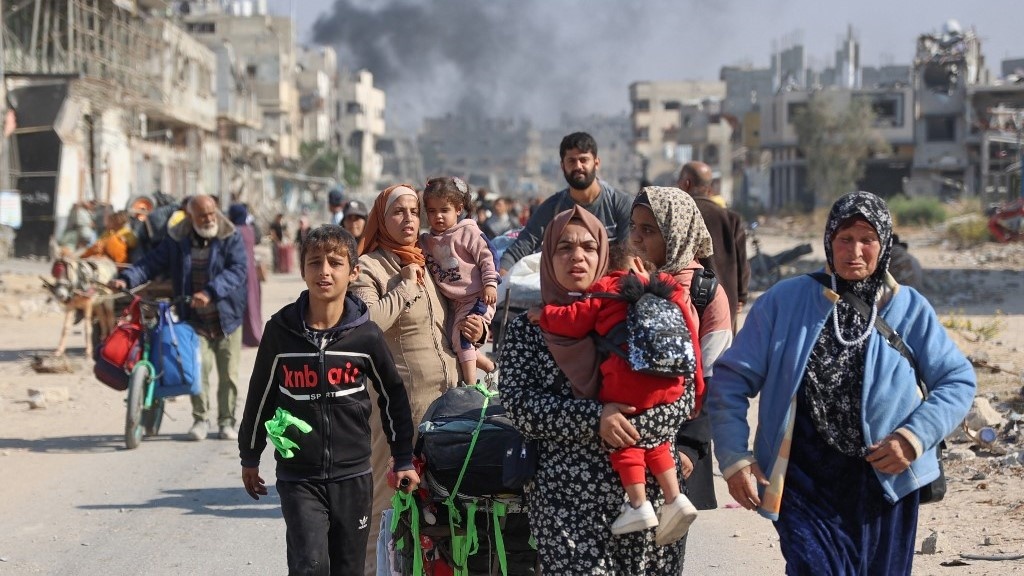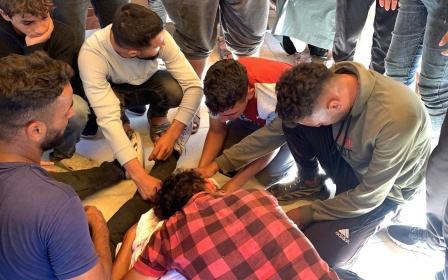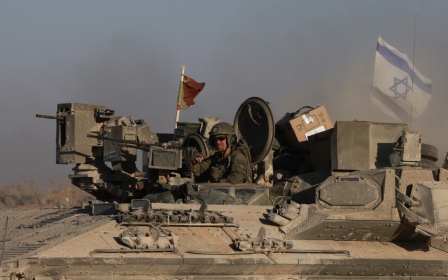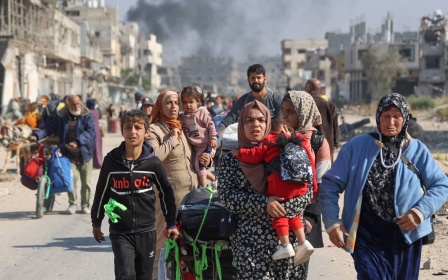Israel committing 'ethnic cleansing' in Gaza, says Human Rights Watch

Israel is committing "ethnic cleansing" in Gaza, a new report by Human Rights Watch (HRW) has said.
The report accuses Israel of intentionally causing the mass and forced displacement of the majority of the civilian population of Gaza since October 2023, which it describes as a "war crime".
Based on interviews with 39 displaced Palestinians, the report says Israel's claims to be lawfully displacing civilians are false and that they have not been secure when being forced to leave or after arriving at the designated safe zones.
It said that ultimately no destination within Gaza is safe, with Israel repeatedly attacking designated safe areas. Instructions on "evacuation" were often contradictory, misleading and last-minute.
Satellite photography included in the HRW report shows apparently systematic destruction of buildings and other land along areas Israel has dubbed "security corridors" including agricultural land whose destruction is exacerbating an already dire food shortage.
New MEE newsletter: Jerusalem Dispatch
Sign up to get the latest insights and analysis on Israel-Palestine, alongside Turkey Unpacked and other MEE newsletters
Statements by senior officials with command responsibility showed forced displacement was an intentional part of Israeli state policy.
“The Israeli government cannot claim to be keeping Palestinians safe when it kills them along escape routes, bombs so-called safe zones, and cuts off food, water, and sanitation,” said Nadia Hardman, refugee and migrant rights researcher at HRW.
“Israel has blatantly violated its obligation to ensure Palestinians can return home, razing virtually everything in large areas.”
Atrocities in Gaza
Israeli forces have killed more than 43,700 Palestinians in Gaza since October 2023, including over 17,000 children and nearly 12,000 women, according to the health ministry and local officials.
For over 13 months, Israeli authorities have maintained a tight block on the strip, allowing less than the daily minimum requirement of the supply of food, water, electricity and medicine.
HRW said Israel’s military had intentionally destroyed or severely damaged civilian infrastructure, including with controlled demolitions of homes.
One apparent aim is to create a buffer zone along Gaza’s perimeter with Israel and "a corridor which will bifurcate Gaza".
The severity of the destruction indicates Israel has no intention of allowing those displaced to ever return to their homes.
One Palestinian interviewed by HRW compared the forced displacement to the mass expulsion of Palestinians that took place in 1948 during the creation fo the state of Israel, referred to by Arabs as the "Nakba" or "The Catastrophe".
"Once I heard the evacuation order to go south, my first reaction was: I'm not leaving," said Hassan, a 49-year-old man who fled with his family from his home near Jabalia in northern Gaza to Khan Younis in the south.
"It is not an option to leave everything I have worked for … but then the bombs started and our houses were being destroyed, I needed to protect my family."
Arms suspension
International aid organisations said this week that Israel has failed to meet the United States' demands to increase the flow of humanitarian aid to Gaza.
Despite this, the US has decided that Israel is not flouting US law by withholding food and medicine to Palestinians and as such there will be no consequences for Israel.

HRW called on governments to publicly support the International Criminal Court investigations into senior Israeli officials and not disrupt the court's work.
It also called on the US, Germany and others to "immediately" suspend arms transfers to Israel.
“No one can be in denial about the atrocity crimes the Israeli military is committing against Palestinians in Gaza,” Hardman said.
“Transfer of additional weapons and assistance to Israel by the United States, Germany and others is a blank cheque for further atrocities and increasingly puts them at risk of complicity.”
Middle East Eye delivers independent and unrivalled coverage and analysis of the Middle East, North Africa and beyond. To learn more about republishing this content and the associated fees, please fill out this form. More about MEE can be found here.





